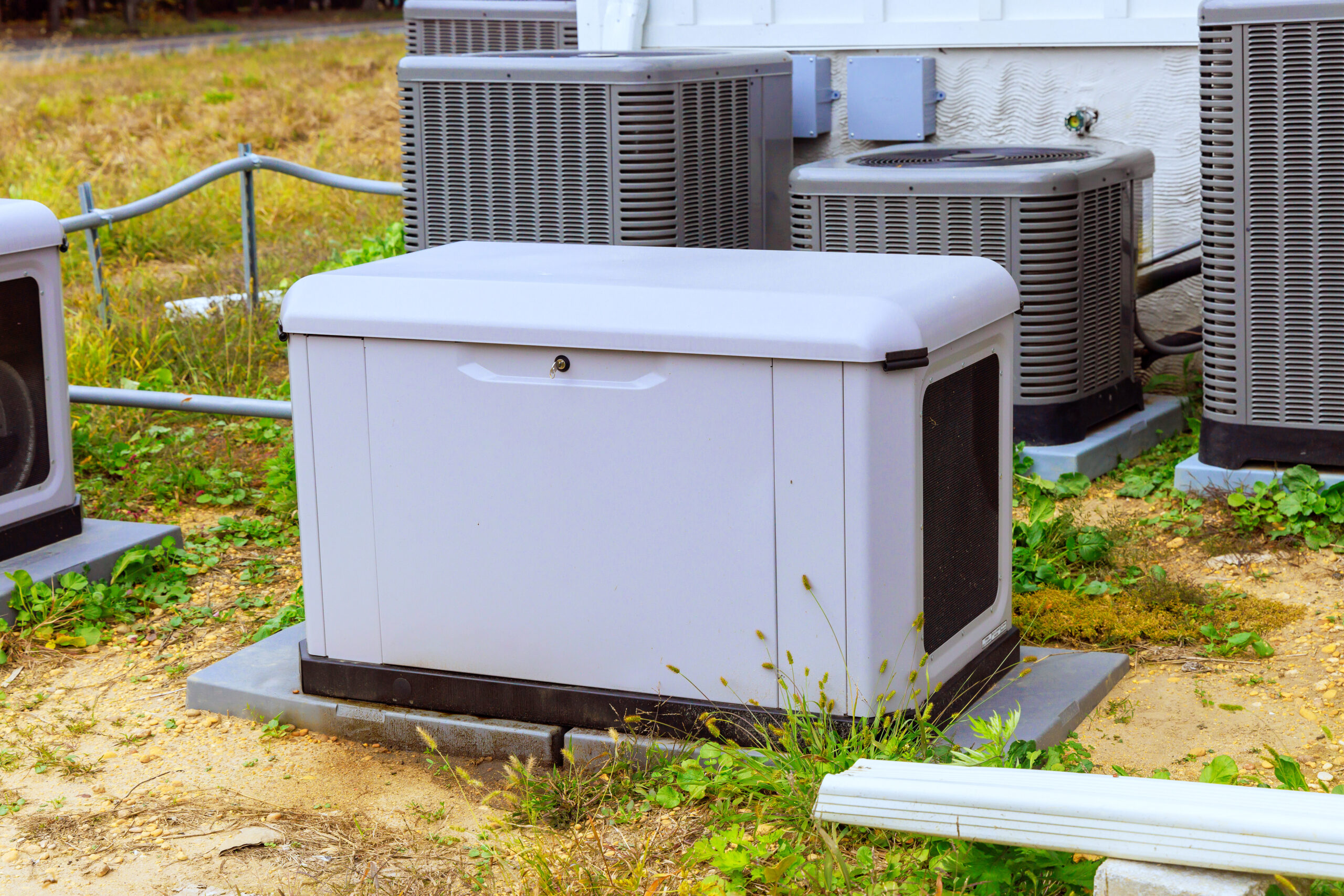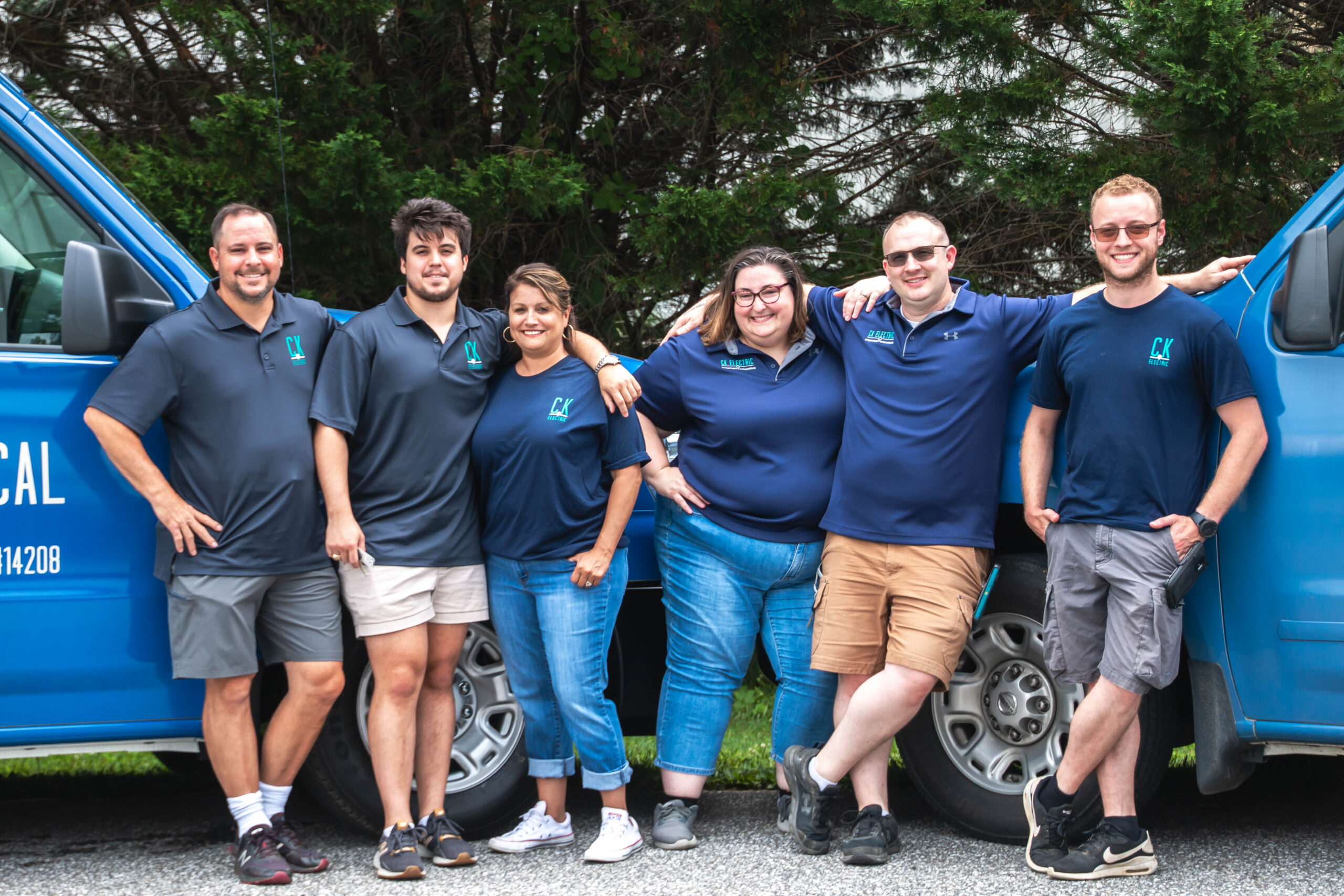Can we be frank? Waiting until a power outage to think about your home generator is like realizing you need an umbrella after you’re already soaked. Homeowners with whole-home generators should never wait until the lights go out to consider generator replacement. Trust me, the middle of a thunderstorm is a horrible time to discover your backup power system is on its last leg. We are going to help you stay ahead of disaster by learning when to consider a generator replacement and the key signs to keep an eye out for.

Generator Replacement: The Warning Signs You Can’t Ignore
Like that old car you swear still has a few good miles left, your generator can only hold on for so long. Knowing the red flags will save you from an untimely power outage, and some serious stress.
Inconsistent Power Performance
Flickering Lights or Power Surges
If your lights are doing a disco routine when your generator runs, something’s off. Appliances struggling to keep up? That’s not “just how it is.” This often points to an underlying issue with the generator’s voltage regulation or internal components like the alternator.
Fluctuating power output can strain sensitive electronics and disrupt household functions. Addressing this early can prevent further damage and ensure steady, reliable power when you need it most.
Failure to Start When Needed
The only thing worse than a generator that won’t start during a storm is realizing you knew it was acting up. Frequent startup failures are a flashing neon sign that replacement time is near. Don’t push your luck, you don’t want to be the only house on the block stuck in the dark.
Frequent startup failures may be caused by problems like battery corrosion, worn-out spark plugs, or fuel system blockages. If your generator struggles to start even after routine maintenance, it’s a sign that major components may be failing. Replacing the unit before a complete breakdown ensures your home stays powered when outages occur.
Frequent Repairs and Skyrocketing Maintenance Could Mean It’s Time for a Generator Replacement
Constant Breakdowns
If your generator repeatedly shuts down during power outages, struggles to maintain steady operation, or fails to run for extended periods, something is seriously wrong. Common causes include worn-out internal components such as the engine, alternator, or control panel. Even if repairs seem manageable at first, ongoing mechanical failures can result in significant downtime and leave your home unprotected during emergencies.
For example, if you’ve had technicians replace multiple parts like fuel injectors, starters, or even circuit boards within a short timeframe, your generator is likely on borrowed time. At this stage, investing in a new, more reliable unit can prevent future headaches and ensure uninterrupted power when it matters most.
Rising Repair Bills
If fixing your generator costs more than your monthly coffee habit (and you know that’s not cheap), you’re throwing good money away. Generators consist of many complex components: engines, transfer switches, batteries, and fuel systems. All of which wear down over time. If repairs involve major parts like a cracked engine block or a burned-out alternator, expect hefty bills that could easily surpass several thousand dollars.
A good rule of thumb: if the cost of repairing your generator is 50% or more of the price of a new unit, replacement is the smarter financial move. Additionally, newer generators come with warranties and improved fuel efficiency, reducing both repair and operational costs.
By recognizing these signs early, you can avoid costly surprises and ensure your home stays powered reliably.
Your Generator Is Older Than Your Favorite Hoodie
More Than a Decade Old
If your unit’s been around longer than your first smartphone, it’s probably not as reliable as it used to be. Time doesn’t just age us, it ages generators too. The typical home generator has a lifespan of 10-15 years with regular maintenance. After a decade, key components like the engine, alternator, and control system may lose efficiency, even if breakdowns haven’t started yet. Technology advances quickly, and older models can’t compete with today’s more efficient, eco-friendly designs. Plus, older systems may lack modern features like automatic load balancing or remote monitoring, making them less effective in providing seamless power during outages.
High Runtime Hours
Generator age isn’t just about calendar years, it’s also about usage. Think of it like mileage on a car. A generator with extensive runtime hours due to frequent power outages can experience significant wear, even if it’s only a few years old.
For instance, a generator powering a home through frequent winter storms may wear out faster than one used occasionally during summer outages. If your generator has worked overtime, it may be nearing the end of its service life, even if it still looks fine on the outside.
Mechanical Meltdowns You Can’t Ignore
Hard Starts or Slow Response
If your generator acts like a teenager getting out of bed, slow and grumpy, you’ve got a problem. A generator that struggles to start or takes too long to power up isn’t just being temperamental, it’s sending a distress signal. Slow or hesitant starts often indicating worn-out components such as the battery, starter motor, or fuel system.
Weird Noises or Vibrations
Is your generator sounding like it’s auditioning for a heavy metal band? A generator should hum, not shout. Banging, clanging, or grinding noises often point to loose or broken internal parts such as fan blades, bearings, or engine mounts.
Excessive vibration can also mean that the generator isn’t securely mounted or has imbalanced components. For example, if your generator shakes violently or makes loud metallic sounds when running, immediate inspection is crucial. Persistent mechanical issues like these often signal that replacement is the most reliable option.
Visible Damage That Screams “Help Me”
Fuel or Oil Leaks
See puddles under your generator? Unless you’ve got very precise rain, that’s likely oil or fuel leaking, an obvious sign of worn seals, cracked hoses, or a problem that’s not going away on its own. Leaks aren’t just messy, they’re dangerous. For example, a slow oil leak can cause your generator to run with insufficient lubrication, leading to catastrophic engine failure. Meanwhile, fuel leaks pose a fire hazard and can result in costly cleanup. If leaks persist even after repairs, replacing the entire generator may be the safest option.
Rust and Corrosion
Rust might add charm to old furniture, but it’s a death sentence for generators. Corrosion weakens structural components like the fuel tank, exhaust system, and electrical contacts, making your generator less reliable over time.
Consider this: rust on the generator’s frame might seem cosmetic, but corrosion inside the fuel lines or engine casing can cause serious performance issues, or even system failure. If rust has spread extensively, replacing the generator is often more practical than constant patch-up repairs.
Fuel Inefficiency: Your Wallet Feels It First
Skyrocketing Fuel Costs
If your generator’s fuel consumption has doubled, you’re practically burning money. Older models are far less efficient than today’s tech-savvy models. Older generators tend to guzzle fuel like there’s no tomorrow. As engines age, they lose efficiency, consuming more fuel to produce the same amount of power. If you notice your fuel bills increasing significantly during outages, your generator’s performance is slipping.
For example, an outdated generator might burn through twice the fuel of a modern model while delivering less power. Upgrading to a newer, fuel-efficient generator can save you money on fuel costs while reducing your carbon footprint—a win-win for your wallet and the environment.
Tech So Old It Should Be in a Museum
Today’s generators come with features like automatic load balancing, remote monitoring, and quieter operation. Modern units are safer, greener, and much easier to manage. Technology evolves quickly, and today’s generators come packed with smart features that make home backup power easier and more efficient. Features like automatic load balancing, remote monitoring, quieter operation, and improved fuel economy weren’t standard on older models.
If your current generator lacks these capabilities, upgrading isn’t just about avoiding breakdowns, it’s about modern convenience. For example, remote monitoring lets you check your generator’s performance through a smartphone app, giving you peace of mind whether you’re home or away. Why settle for outdated technology when today’s models offer so much more?
Trust CK Electric for Your Generator Replacement Needs
 Don’t gamble with your home’s power security. CK Electric is Central Maryland’s trusted electrical contractor for residential and commercial customers. We specialize in installing, maintaining, and replacing home power generators with expert precision.
Don’t gamble with your home’s power security. CK Electric is Central Maryland’s trusted electrical contractor for residential and commercial customers. We specialize in installing, maintaining, and replacing home power generators with expert precision.
Stay ahead of the next storm by contacting us today and let us keep your lights on and your worries off.
We provide electrical services for the following areas: Sykesville, Westminster, Eldersburg, Ellicott City, Frederick, and all of Central Maryland. Call us at 443-920-3078 or email us at info@ckelectricllc.com. We are happy to serve you!
